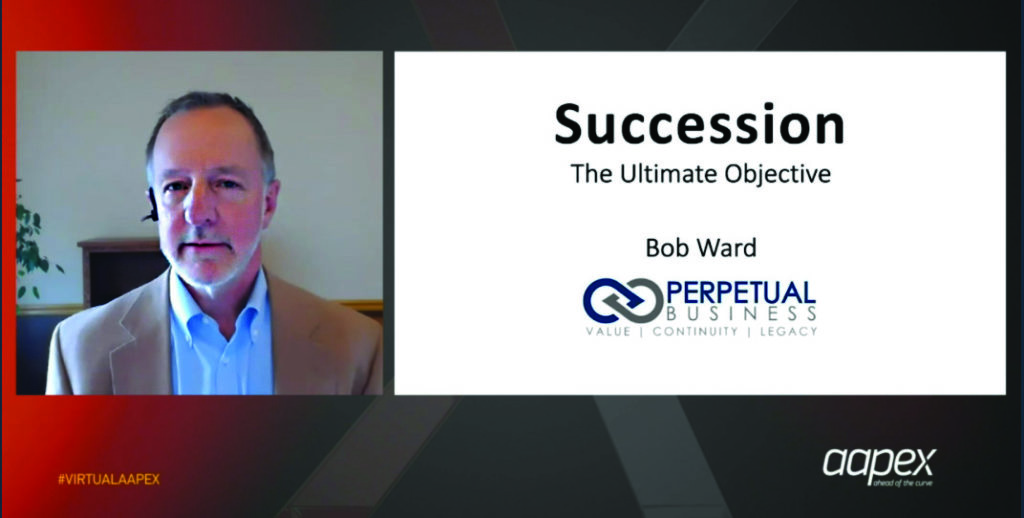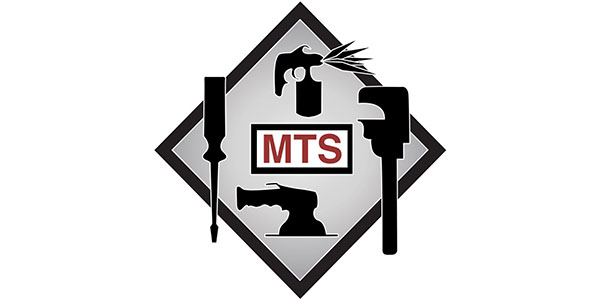According to Bob Ward, president of the consulting firm Perpetual Business (https://perpetualbusiness.co), roughly 85% of small businesses don’t survive after the departure of their current owner.
“How do you make sure that you are among the 15 out of 100 [small businesses] that survive?” Ward asked during a presentation at the 2020 Virtual AAPEX Experience. “You have to take action … and you must start now.”
Ward explained that succession planning is about creating a “perpetual business.” Ward defines a perpetual business as one that’s able to successfully operate – independent of its current owners – regardless of whether the owners retire, pass away or leave the business for other reasons.
According to Ward, the first, most basic step in succession planning is to develop a written document that spells out who would own and run the business in the event of your untimely death or disability. The plan should be easily accessible to your spouse, your key employees, your attorney and your CPA. Among other things, it should detail who would have check-signing authority in your absence, to ensure that the business has access to its bank accounts. He also recommends naming someone other than you and your spouse as an officer of the company, because government agencies such as the IRS “won’t talk to anybody unless they are an officer or otherwise authorized.”
An important component of the plan is what Ward calls a “stay bonus” for the employees, who most likely “are not going to be very comfortable with you gone.”
“We create a bonus structure, up to a year long, that will make sure your employees do not make less money than they’re making now,” Ward explained. “And that funding is going to come from the business bank account or from the liquidity provided by life insurance that you will carry – so you’re not at risk of losing your people.”
Your succession plan is much more than an emergency playbook to keep the business going if something happens to you. Ward views it as a proactive process that will help ensure – among other things – that you get the maximum value for your business if you decide to sell it, and that you’re always in a prime position to pounce on opportunities that come your way, whether it’s an acquisition or expansion.
“When you think about succession, what we’re really talking about is ensuring the continuity of your business so that you will receive the benefit yourself, your next buyer realizes their dream of ownership, your employees are cared for, customers retain a valued service provider and your community retains a valued business.”







